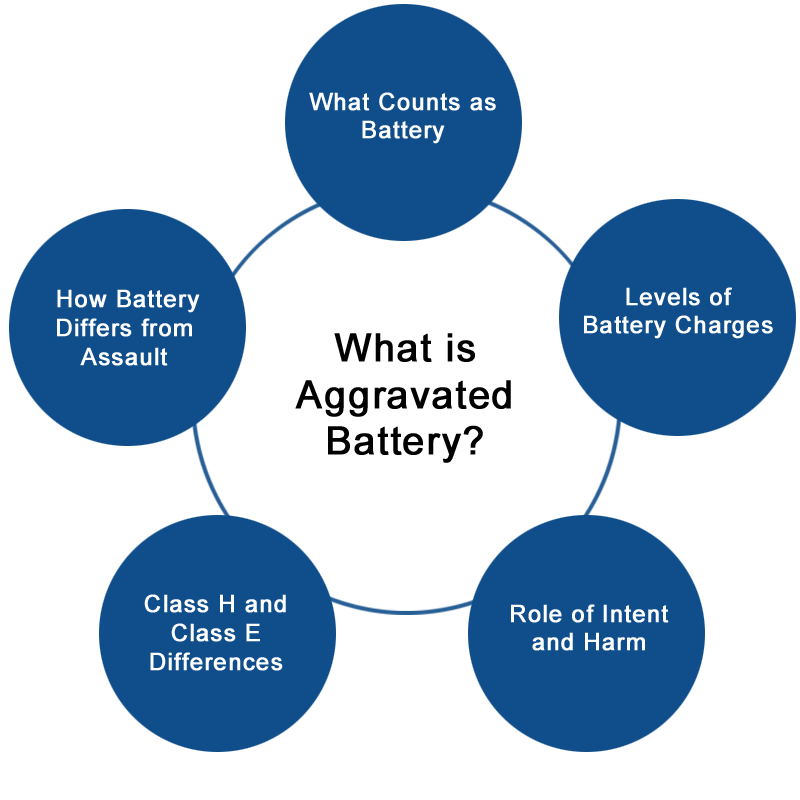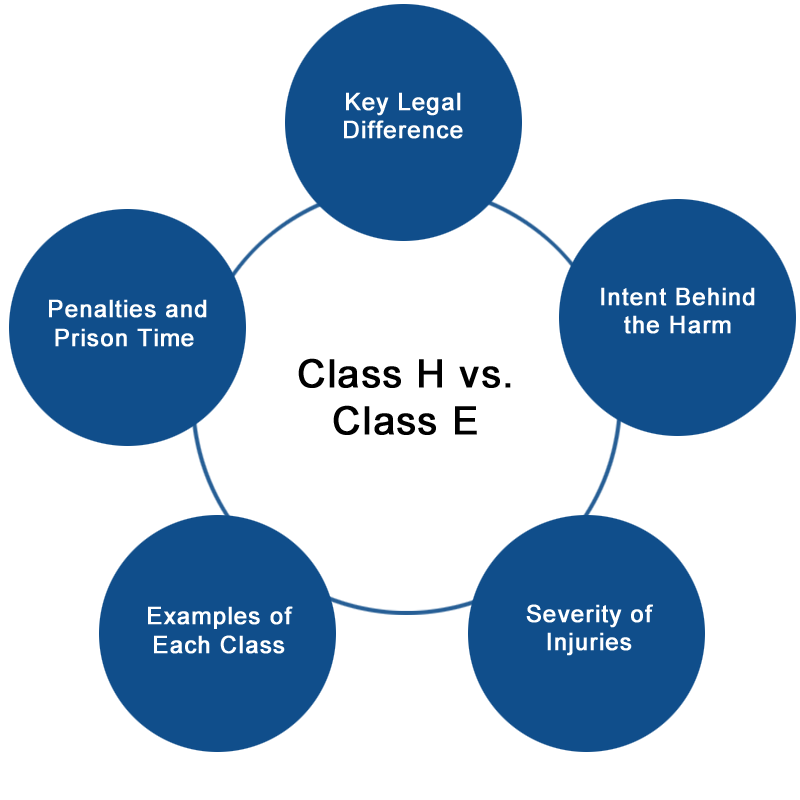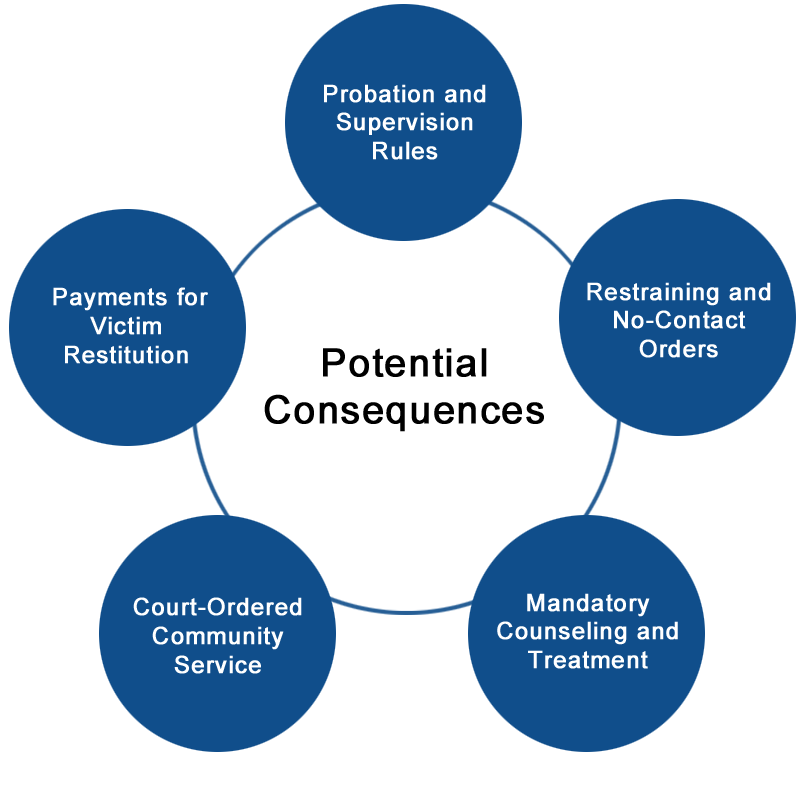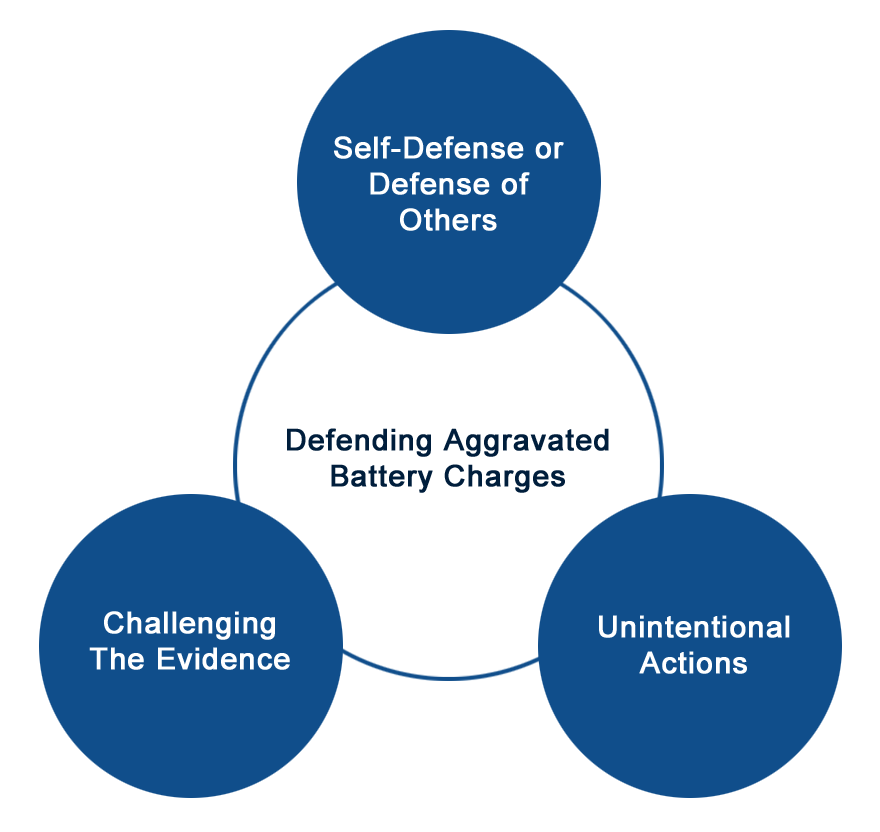 Aggravated Battery in Wisconsin
Aggravated Battery in Wisconsin
As defined under Wisconsin law, battery refers to any nonconsensual action which causes bodily harm to another person. Underneath that umbrella description, there are several different types of battery based on the degree of injuries and the intentions behind the act. When there are only minor injuries, the result could be a misdemeanor charge of Simple Battery. In cases where a bone is broken or the victim suffered severe lacerations, felony charges of Substantial Battery could result. When the victim suffers significant or permanent injuries through the premeditated actions of their assailant, the prosecution could pursue high-level felony Aggravated Battery charges.
Interestingly, while many states lay out separate laws and penalties for battery and assault, Wisconsin law treats both the same. An incident that could be prosecuted as an assault in the next state over can be prosecuted as a battery or a related charge such as disorderly conduct.
Aggravated battery charges usually require some kind of intentionality, showing that the defendant intended to cause serious harm or hazardous circumstances. As circumstances vary from case to case, there are several different classifications of felonies that Aggravated Battery could fall under. On the lower end, with lighter penalties, is a Class H Felony. More serious cases that require greater consequences could be classified as Class E Felony.
One example of an action that could be pursued as a Class H Felony Aggravated Battery would be physically striking someone hard enough to cause fractures or pushing them down off a high ledge, causing serious injury. If those same actions were done intentionally to cause great bodily harm, or involved a weapon, and life-threatening or permanent injuries resulted, they could result in Class E Felony Aggravated Battery charges.
The differences between the two are three-fold. For a Class E Felony, the intention needs to have been to cause great bodily harm beyond superficial injury. Those injuries need to be life-threatening or permanent, rather than simply painful. And, naturally, Class H and Class E Felonies carry far different penalties. Class H charges typically carry a six-year prison term and fines up to $10,000, while Class E charges could lead to up to 15 years in prison and fines up to $50,000.
 Class H vs. Class E
Class H vs. Class E
In the following, we will compare and contrast Class H and Class E felonies, breaking down the laws that govern them and the myriad consequences each of these charges could lead to.
As defined in Wisconsin Stat. § 940.19(4), the largest legal distinction between Class E and Class H Felonies comes down to a single word: great.
From Wisconsin Statutes and Annotations:
(4) Whoever causes great bodily harm to another by an act done with intent to cause bodily harm to that person or another is guilty of a Class H felony.
(5) Whoever causes great bodily harm to another by an act done with intent to cause great bodily harm to that person or another is guilty of a Class E felony.
Class H Felony Aggravated Battery occurs when someone intends to cause bodily harm, but not necessarily permanent injury or disfigurement, yet causes great bodily harm all the same. The great bodily harm qualifies the incident as aggravated battery, but the unintended nature of the injuries that follow qualifies it as Class H versus the more severe Class E.
As a more serious charge, Class E Felony Aggravated Battery charges result when the defendant acted intentionally to cause great bodily harm, for example stabbing a person or striking them with a large blunt object resulting in permanent brain damage.
As mentioned earlier, a Class H Felony Aggravated Assault charge carries a prison term of up to six years and fines of up to $10,000 or more. Because a Class E Felony Aggravated Assault charge results from a more serious, intentional attack it can carry a term of up to 15 years in prison and fines up to $50,000.
Those are not the only consequences, however. Those convicted of either a Class E or Class H Felony Aggravated Battery could expect to face:
 Probation & Supervision Conditions: As a substitute or addition to jail time, a judge could enforce probation, requiring regular check-ins with a probation officer and adherence to strict conditions to avoid immediate incarceration.
Probation & Supervision Conditions: As a substitute or addition to jail time, a judge could enforce probation, requiring regular check-ins with a probation officer and adherence to strict conditions to avoid immediate incarceration.
No-Contact Orders, Protective Orders or Restraining Orders: A judge could order the defendant to cut off all contact and remain a certain distance away from the victim or their home, school or workplace. Violation of this order could lead to further criminal charges. Restraining orders, which could be permanent, would continue even after the completion of their sentence.
Anger Management, Therapy and Counseling: Beyond jail time, a judge could require mandatory anger management classes or behavioral therapy to address underlying violent tendencies, with batterers’ intervention programs likely in cases of domestic violence.. In incidents where alcohol or substance abuse was a factor, defendants may be required to attend counseling and abstain from drinking or using drugs.
Community Service: As part of their sentence, defendants may be required to perform hundreds of hours of service ranging from cleaning public spaces and working for nonprofits to participating in victim impact programs.
Restitution Payments: To help victims reclaim normalcy after an assault, defendants may be required to compensate them for medical expenses, loss of wages, therapy costs or damage to property.
And that’s on top of the consequences that come with having a felony conviction on your permanent criminal record, including loss of First Amendment rights, restrictions on travel and immigration, loss of professional licensure and long-term consequences for employment and social standing.
 Defending Against Aggravated Battery Charges in Wisconsin
Defending Against Aggravated Battery Charges in Wisconsin
Just because you have been charged with Aggravated Battery in Wisconsin does not mean that you have been found guilty. The presumption of innocence means that you have the opportunity to defend yourself in court. At Tracey Wood & Associates, we’ve helped countless clients fight back against Aggravated Battery charges, helping them get those charges reduced, dismissed or acquitted. Our attorneys take an aggressive approach to your defense, investigating every aspect of your case and analyzing every detail from audio recordings and test results to witness statements and police evidence. Armed with this comprehensive knowledge of your case, we craft a compelling defense utilizing one or more time-tested strategies including:
- • Claiming Self-Defense or Defense of Others: Proving to a judge or jury that your actions resulted purely from you protecting yourself or others from harm or immediate danger using reasonable force.
- • Showing that Your Actions Were Unintentional: A Felony Aggravated Battery conviction requires the prosecution to prove your actions were intended to harm. Showing that the injury was accidental can severely weaken their case.
- • Challenging The Evidence: The prosecution must prove guilt beyond a reasonable doubt. Showing where an alleged victim may be making false accusations or that their claims were exaggerated, or questioning whether there is sufficient evidence, can build that reasonable doubt.
It all begins when you reach out to schedule a free, no-obligation evaluation of your case. Under the protection of client-attorney privilege, our experienced attorneys will analyze all of the evidence, learn your side of the story and answer any questions you may have. Armed with this information, we’ll craft a defense strategy tailored to you, with no pressure to commit. All it takes is a phone call to begin protecting your future, so reach out today.
Call (608) 490-5779 or Schedule a Free Case Evaluation Online

